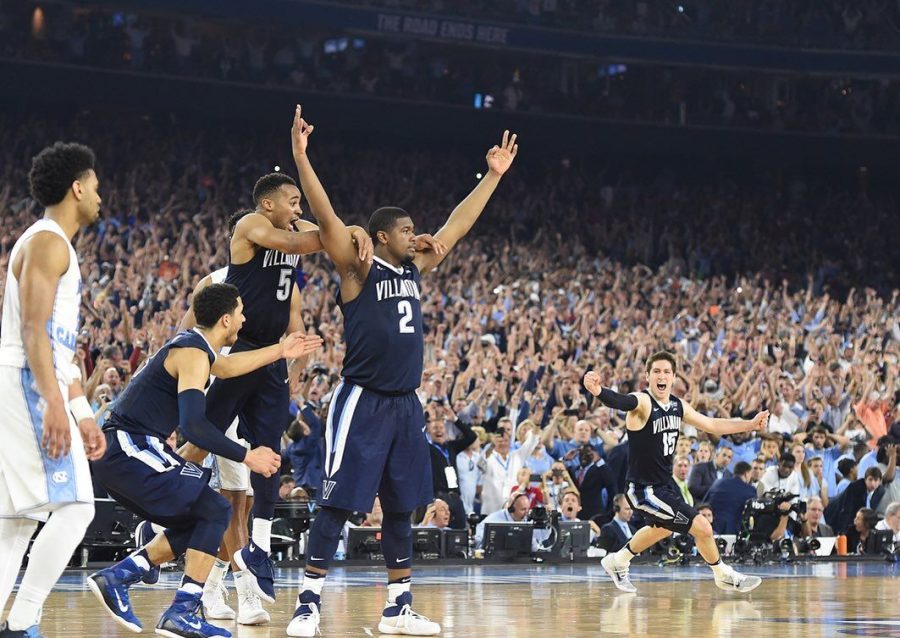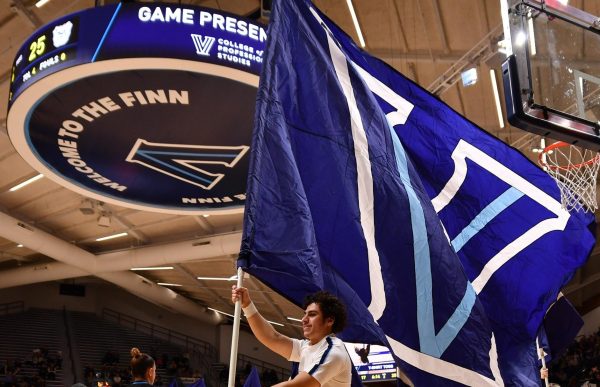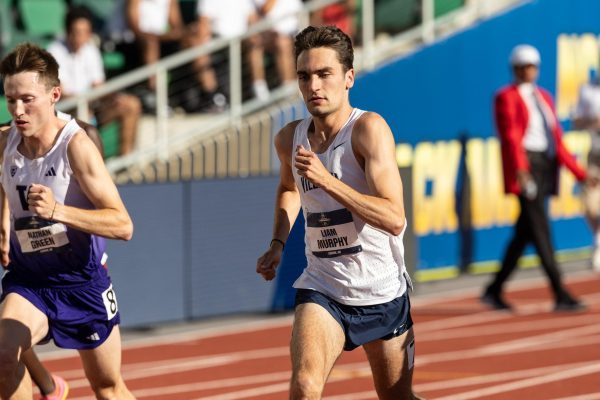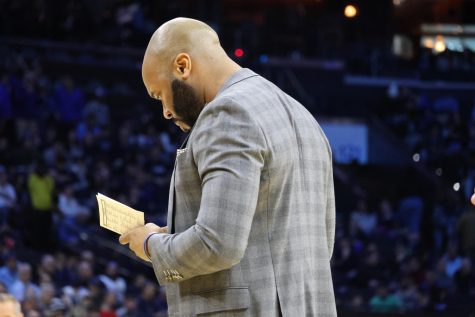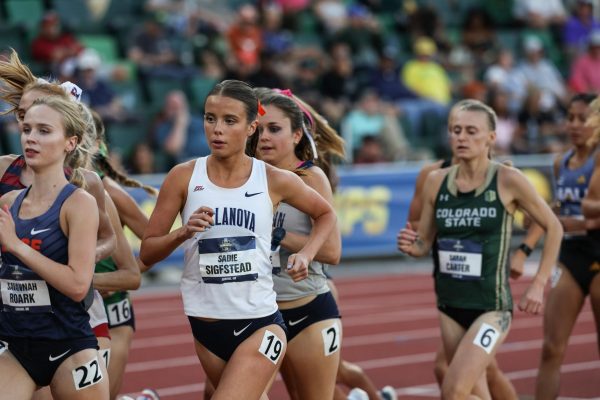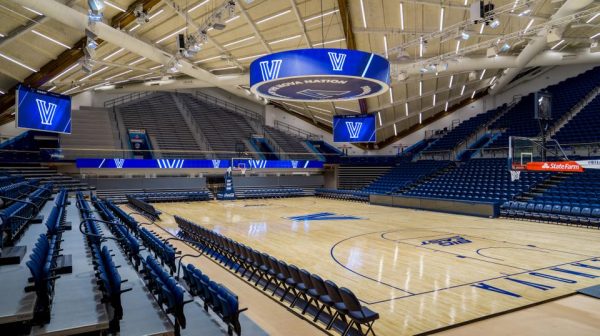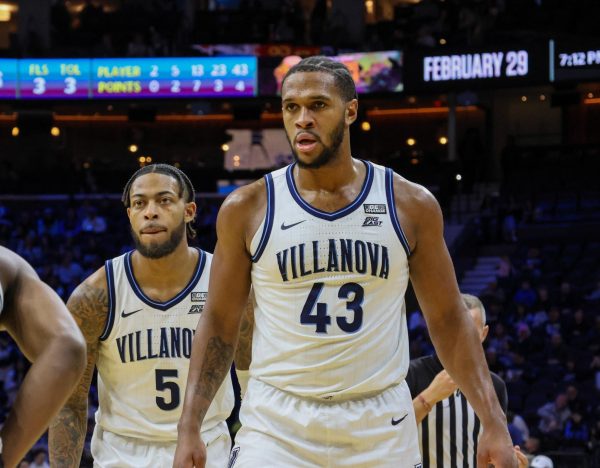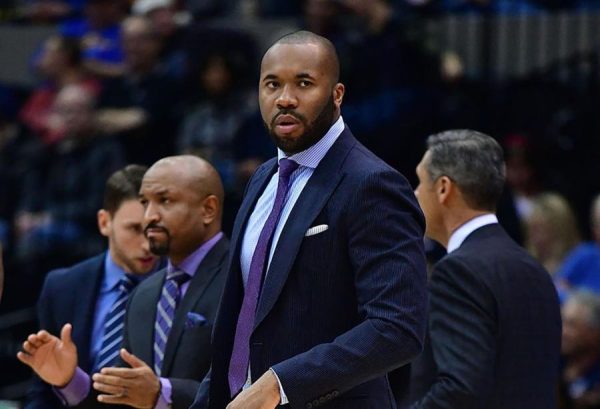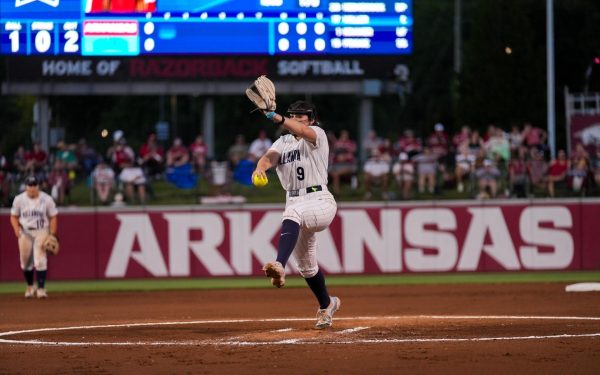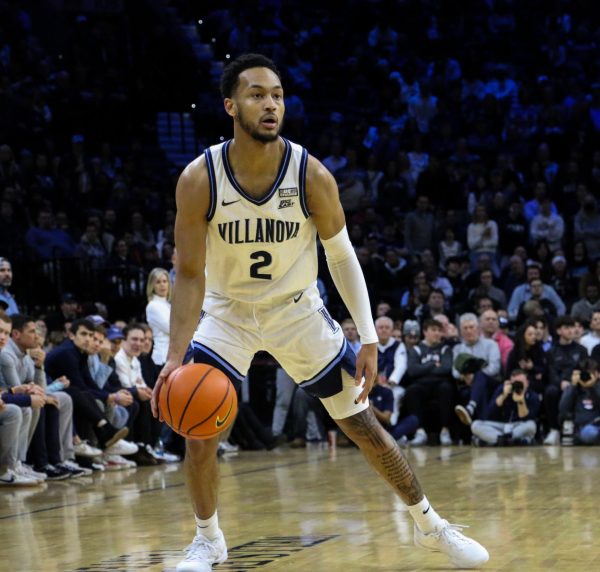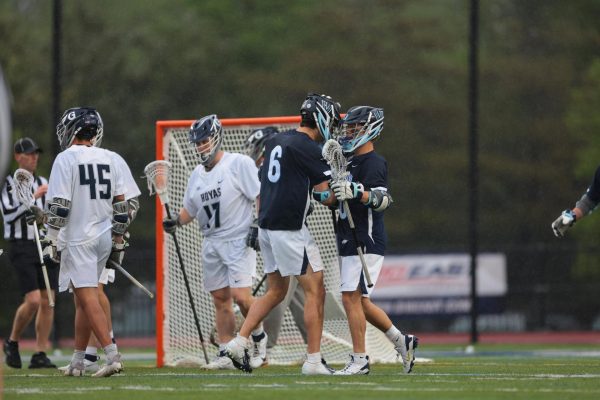2020-21 College Basketball Season to Start on Nov. 25?
Courtesy of @NovaMBB Instagram
2020-21 College Basketball Season to Start on Nov. 25?
September 16, 2020
Will there be a college basketball season? As Villanovans, this is a question that is weighing heavily on many of our minds. We’ve already seen the NCAA football season altered, with conferences making different decisions regarding their scheduling. At the FCS level, conferences such as the CAA cancelled their season, which resulted in no football for the University. However, as of now, conferences such as the SEC, ACC and Big 12 are opting to continue their seasons, which seems to be a good sign for the chances of a basketball season.
While NCAA basketball for 2020-21 does not seem to be in jeopardy of being cancelled at this point, there are high levels of uncertainty as to how this season will work. As we move closer to the beginning of the season in early November, more insight into scheduling and logistics have slowly been coming out.
Last year, the full Villanova basketball schedule was announced on Sept. 5, with the season officially beginning Nov. 5 against Army; as of press time, the schedule for this year has yet to have been announced. Despite some push to keep Nov. 10 as the scheduled start date for the season, the NCAA oversight committees have proposed Nov. 25 as the start date. The Division I Council is scheduled to meet on Sept. 16 and will vote on this proposal. Nothing is officially set at this time, but the University is anticipating at least two non-conference games.
As Jon Rothstein reported on Sept. 8, the Big East and Big 12 are still looking to play their matchups for this season, which would mean that Villanova plays Texas at some point. Additionally, the University is currently scheduled to play Virginia on Dec. 22 at Madison Square Garden, which could potentially be a top-five matchup.
If the season begins on Nov. 25 as proposed, the amount of uncertainty with less than three months to its beginning would be unprecedented.
How many out of conference games will be played? Will there be some version of a bubble? How many teams will be in the NCAA tournament? How will the NCAA ensure that players remain safe? Answers to these questions will have to come in the months ahead for the season to occur and they have been slowly trickling out over roughly the past month.
The NCAA has created a COVID-19 Medical Advisory Group, which will help create a plan to keep student athletes in all sports as safe as possible. As for non-conference games, the Big Ten recently reported that they want to play them, and the Big 12 and Big East are planning to go through with their “Challenge” games.
Same as non-conference games, there still is hope that opening season tournaments, which usually have some extremely entertaining games, will be able to occur, perhaps in a “bubble” setting.
The Naismith Basketball Hall of Fame sent a detailed pitch to programs for plans to host a tournament including at least 32 games and involving at least 16 teams between Dec. 9 and 20. Other events, such as the Empire Classic tournament, which involved Villanova, Baylor, Michigan and NC State, could possibly move their games to the Hall of Fame as well.
In terms of the ultimate point of the season, “March Madness,” Jon Rothstein reported on Sept. 9 that the ACC was proposing that every single Division I team (about 350) make the NCAA tournament. However, that idea was quickly shot down, as NCAA SVP of basketball Dan Gavitt stated that, “at this time we are not working on any contingency plan that involves expanding the tournament field.” Just like practically everything else involving the 2020-21 season, there does not seem to be a plan in place yet for how the tournament will be safely conducted.
Of course, as die-hard Villanova basketball fans, students hope this season occurs and that with a consensus preseason top-five team in the country, the team gets a chance to win its third national championship in six years. Unfortunately, the chances of fans being in-person at the games look slim, but the safety of the athletes comes first.

